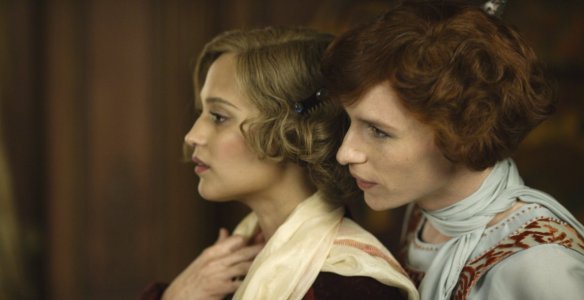(2019) Documentary (The Orchard) Hurley Haywood, Patrick Dempsey, Simon Gregg, Hope Haywood, JC France, Frank Stella, John Patton, Don Davis, Bill Warner, Sam Posey, Diane K. Hewitt, Don Leatherwood, Jim Busby, Richard Pendell, Steve Hill, Gerry Meara, Patrick Lons, Andy Chapman, Pattie Hughes Mayer, Susan Snodgrass. Directed by Derek Dodge
The world of sports car racing and endurance racing was back in the 70s and 80s a little more visible than it is today when NASCAR and Formula 1 dominate the auto racing world. Back in the day though Hollywood superstars like Paul Newman and Steve McQueen both were competent sports car racers. Today the studios would have apoplexy if big stars risked life and limb in sports car racing although some big names, like Patrick Dempsey, continue to race.T
In that world, Hurley Haywood looms as a legend. The only 5-time winner of the 24 Hours of Daytona race (these days sponsored by Rolex), he also won the Le Mans endurance race three times and the 12 Hours of Sebring twice. Along with partner Peter Gregg in the 70s, they were the most dominant team on the endurance racing circuit ever.
Haywood came from money and privilege; he traveled extensively as a boy and young man, and was matinee idol handsome. He fell in love with auto racing at a young age and started driving full size cars at the tender age of twelve. While still in college at Jacksonville University (he still calls Jacksonville home), he entered a sports car race and beat local professional Peter Gregg. Impressed with the young man’s skill, Gregg took him on as a partner and mentor and the two never looked back.
This documentary looks back on the life and career of Haywood and deals with issues beyond the race track. For one thing, Haywood is a gay man, a definite no-no in the 70s when the sport was a symbol of masculinity and beautiful models surrounded successful drivers to which Hurley was no exception. He kept his personal life separate from the track and was clearly uncomfortable discussing it in contemporary interviews. He didn’t come out until last year but doesn’t seem to have harmed his career to any appreciable extent; while he has retired from active driving, he continues to work in the sport as a mentor and coordinator for Dempsey-Wright racing, the team that the aforementioned Patrick Dempsey (who is a producer for the documentary) is part of.
Some of the more poignant moments come from Hurley’s longtime companion and husband Steve Hill, who talks about not being able to share in Hurley’s victories so as not to out him. He would watch through a chain link fence while his partner celebrated on Victory Lane. Gay men in that time learned to accept such treatment in order to keep from ruining the careers of their partners or having their own careers ruined. Although it isn’t discussed, homophobic drivers certainly could have purposely caused accidents that could maim or kill Haywood if they so chose; it wasn’t out of the realm of possibility.
Another subject tackled here is mental illness and Gregg suffered from it. Nicknamed “Peter Perfect,” the driven and intensely competitive racer strove for perfection in every race he ran. Never able to maintain relationships for long due to his illness, he drove wives away with his womanizing and friends away with his often-cruel behavior. Eventually even Hurley, his closest friend, was forced to step away. Although the two men reconciled shortly before Gregg’s death, Gregg’s suicide hit Hurley hard. There had been whispers that Gregg and Hurley had a romantic relationship but Hurley shoots that rumor down, echoed by the friends and family of Gregg who assert that he was quite straight.
There is some compelling archival racing footage, although because of the nature of the races we don’t get a sense of the overall strategy of endurance racing. Much of the film is set at the Daytona International Speedway and we do get a sense of the allure for the place. Haywood’s reverence for Daytona is quite clear.
Early on Dodge gets a bit coy with the gay issue, even though at this point anyone who would want to see the movie is likely aware of Haywood’s sexuality. That coyness was unnecessary and a bit over-cute to be honest. My main problem with the movie is that Dodge in trying to tackle the prongs of mental health, homosexuality and sports car racing history ends up really portraying none of those topics with any kind of completeness and we’re left with an unsatisfied feeling after the film finishes. Part of that may be due to Haywood’s own tendency to play things close to the vest, something he did as a survival tactic as a young man. Today he remains somewhat private and rarely do we get to see how he feels about certain things.
Nonetheless Hurley Haywood is a fascinating subject and a charismatic individual who is kind and courtly. He is aware of his status as a racing legend and is proud of his accomplishments as he should be. He has no wish to be a gay icon; he merely wants to live his life with his husband in peace and one certainly can’t begrudge him that. Still, I wish the film would have been a bit more forthcoming or at least, dived a little deeper into the many fascinating aspects of Haywood’s life and career.
REASONS TO SEE: Tackles some important subjects outside of the racing world.
REASONS TO AVOID: Dodge tries to do a little too much.
FAMILY VALUES: There are some adult themes, a discussion of suicide and mild profanity.
TRIVIAL PURSUIT: This is an English-language remake of Lelio’s 2013 film Gloria.
CRITICAL MASS: As of 4/3/19: Rotten Tomatoes: No score yet: Metacritic: No score yet.
COMPARISON SHOPPING: Steve McQueen: The Man and Le Mans
FINAL RATING: 6.5/10
NEXT: Abnormal Attractions









